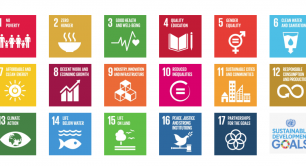How can more investments become impact investments?
Although light hearted and welcoming, Amit Bouri, CEO of the Global Impact Investing Network (GIIN), left the audience at the 2016 Investor Forum in Amsterdam in no doubt as to the size of change he was looking to see in the world.
“The challenges the world faces are very real, very powerful and very urgent. If there’s one thing I hope that you take away from this forum, it is this: business as usual is not enough.
“It is more important than ever for the private sector to consider how our work can ensure a just and equitable society.
“It’s a critical time for investors to look around them at the challenges faced in communities and environments and consider how capital can be directed to generate long-term solutions.”
The 2016 Investor Forum is taking place from 7-8 December, bringing together 600 delegates from more than 30 countries to explore the future of impact investment.
The GIIN has just published ‘Impact Investing Trends: Evidence of a Growing Industry’. The report leads with the statistic that 62 investors grew their impact assets from $25.5bn to $35.5bn between 2013 and 2015. That’s an increase of 40%.
Yet the numbers are dwarfed by the amount of money estimated to be necessary to achieve the UN’s Sustainable Development Goals and the COP21 goals, both of which have initial target dates of 2030. That figure is a mind-blowing $13tn.
It's so important that investors start to move their assets
So, as Jennifer Pyrce of the Calvert Foundation punned so beautifully: “It's so important that investors start to move their assets.”
So how to do it? Marilou van Golstein Brouwers from Triodos Investment Management first thought it more useful to think of the immediate future.
She quoted Christiana Figueres, who worked on the COP21 deal for the UN for seven years .”How you invest your money in the next five years will shape the way the world looks for the next 300 years,” Figueres had told her.
Tim Macready (pictured above, middle), chief investment officer at Australian ethical pension provider Christian Super was optimistic about future investment.
He told the audience: “I have seen this industry develop from an environment where we used to struggle to find deals to an environment today where we have more deals that we can look at.” Christian Super now advises helping other pension funds and institutional investors to make impact investments.
Macready, who had earlier claimed that Christian Super had “systematically destroyed every barrier to institutional investors about impact investment”, said there were now proven models that impact investing worked.
“You have institutions like us and Triodos proving that impact investing is not only good for investment performance and good for own businesses – we’re growing faster than other pension funds out there. I just don’t understand why other pensions funds aren’t doing it," he concluded.



